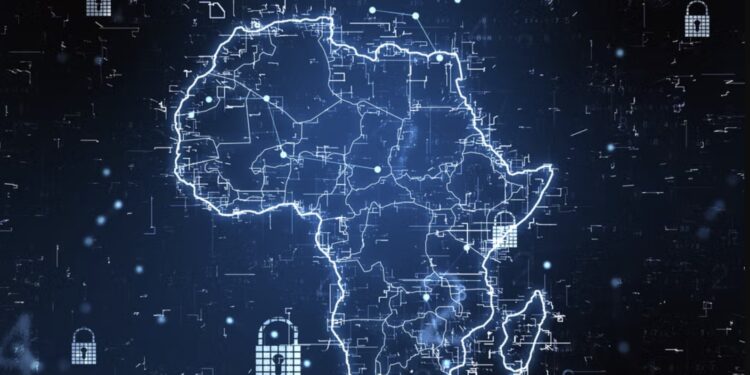The nascent digital economy in Africa, hailed as a vast space for growth, is under threat, and the threat is rising at an exponential rate as AI-driven cybercrime prospers. This new generation of sophisticated attacks is compounding the continent’s pre-existing economic weaknesses, costing it billions of dollars each year and undermining its development aspirations.
The former are cybersecurity experts reporting a disturbing trend. Kerissa Varma, Chief Security Advisor at Microsoft Africa, says Africa loses between $4 billion and $10 billion each year to cybercrimes and that money could be spent on infrastructure and skilling.
Interpol’s research suggests a rapid rise in the number of weekly cyberattacks per organization in Africa, some sources have even reported a year-on-year surge of 23% in 2023. Ethiopia, Zimbabwe, Angola, Uganda, Nigeria, Kenya, Ghana and Mozambique are among the most attacked countries in the world in terms of cyber-attacks.
AI is becoming a force that cuts two ways. It holds great promise for driving economic growth and finally delivering on promise of better public services – but it has also been appropriated by cybercriminals to amplify and automate malevolent actions.
Generative AI tools are being applied to construct hyper-realistic fake documents, voices and images for sophisticated phishing scams, identity theft and financial fraud. The capability of AI to mine through large data sets and zero in on sensitive information makes targeted attacks more focused and difficult to detect.
Its impact is extensive, for governments, for banks and for small and medium-sized enterprises (SMEs). Critical infrastructure, such as industrial control systems for manufacturing and energy, is also at risk. Africa’s businesses are also particularly exposed to cyber risk, with around 90% sector reportedly not having sufficient digital security in place.
The problem is also compounded by a critical cybersecurity skills gap in the workforce, as well as an absence of substantial spending in next-generation defensive solutions in many parts of the continent. And although the African Union has developed a Continental AI Strategy, and is working to enhance national cybersecurity frameworks, this effort is not keeping pace with the threat landscape changes. The Malabo Convention, which seeks to harmonize data protection and cybersecurity on the continent, is important, but the full implementation and enforcement is still needed.
A concerted effort is also required to contain the mounting risks. This will involve substantial funding of AI cybersecurity measures, strong digital literacy programs for all, and greater cooperation between governments, private industries, and international bodies.
AI-enabled cybercrime will, if not addressed urgently and comprehensively, seriously hinder Africa’s digital transformation and its path to the sustainable economic prosperity.










![Online Scam Cases Continue to Rise Despite Crackdowns on Foreign Fraud Networks [Myanmar] Online Scam Cases Continue to Rise Despite Crackdowns on Foreign Fraud Networks [Myanmar]](https://sumtrix.com/wp-content/uploads/2025/06/30-12-120x86.jpg)





